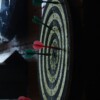“Be careful not to practice your righteousness in front of others to be seen by them. If you do, you will have no reward from your Father in heaven.”
Matthew 6:1
I rarely see so many public intellectuals misunderstand the implications of a Supreme Court case as the recent Kennedy v. Bremerton School District decision about a coach disciplined for praying in public after a game. Thomas Chatterton Williams, a thinker I respect, tweeted that he thought it was the most disturbing case of the recently decided Supreme Court cases based on his misunderstanding of the implications. Others piled on. The No Lie with Brian Taylor Cohen podcast tweeted the lie, “The Supreme Court just ruled 6-3 that public school teachers and other staff can now lead students in prayer, significantly undermining the separation of church and state and overturning decades of established precedence.”1 Unfortunately, intelligent people do not always read court decisions and thus promote misunderstandings. Both tweets failed to understand the Court’s decision.
As a matter of Christian integrity and justice (and not simply Establishment Clause jurisprudence), I would agree with Cohen that Christian educators should not try to lead public K-12 students from a variety of worldview backgrounds in Christian prayer. When Hindus in India force Christian to do it, its a problem and Christians should be sensitive to minority concerns when they are the majority. As Justice Sotomayor’s dissenting response to the majority decision notes, Coach Kennedy had crossed that line in the past.
Yet, that was not the reason Coach Kennedy was disciplined by the school board. As the majority decision makes clear, “The contested exercise here does not involve leading prayers with the team; the District disciplined Mr. Kennedy only for his decision to persist in praying quietly without his students after three games in October 2015.”2
In this regard, the Kennedy decision is an important victory for the free exercise rights of government employees. When you’re off the clock and even when you’re on the clock, you do not lose your free exercise right to pray as an individual—even in public and even on public property.
That being said, Christians should raise some theological questions about the practice of performative prayer in public at athletic events (especially in light of Mt. 6:1). Why would one do it, and what is one trying to accomplish?
I see two types of athletic performative prayer with one serving a better purpose than the other. First, I’ve often experienced performative athletic prayer as the superstitious ritual of nominal Christians. When I played high school football, basketball, and baseball in Texas, I found a certain group of students (and it was always students and not coaches—which means it was legal), who wanted us all to come together and say the Lord’s prayer before a game.
I found this whole request odd for several reasons. The athletes who wanted to do it were not churchgoers. In fact, it was usually the partiers and the guys sleeping around—the major hedonists on the team who wanted to do it. They may have identified as Christians on social science surveys, but they were actually the leaders of the epicurean faction in high school.
Why did they want to do it? I guess I never really asked them directly. I surmise what that they had two motivating reasons. First, team prayer served as some kind of good luck charm for them. Second, it seemed they wanted to do some sort of team bonding ritual. The problem with this kind of ritual through goes beyond the puzzlement I experienced at the time. Today, I am more forthrightly against it because it takes something sacred and uses it for profane purposes.
The other problem is that it alienates those who are not Christian, who think this performative prayer is the substance of what Christianity is. This past weekend, Joseph Skiball wrote an essay in the Wall Street Journal entitled, “When the Prayers at School Aren’t Yours.” He grew up Jewish in the Texas town of Lubbock in the 1970s where prayers in Jesus’ name were prayed every day over the loudspeaker despite the 1962 Engels v. Vitale decision that declared such practices violated the Establishment Clause. He does not remember the experience fondly, since it reminded him that he was the other.
I also went to high school in Texas in a small town a decade later. Legal student-led Christian performative prayer before sports events also reminded me that I was the other. I was the one who thought performative prayer led by hedonists silly. What really mattered, I thought and still think, was that you cultivated a relationship with God through prayer not just when you wanted God’s blessing for athletic victory but to guide your life throughout high school. Despite what Skiball might expect, unserious Christian prayer used as a good luck charm alienated me as a Christian as well.
Is there ever a place for a different kind of authentic, performative athletic prayer? I do think there is, and I’ve seen Scott Drew, the head coach of Baylor University’s basketball team, practice it. The whole team gathers at the end of a game, whether they win or lose, and prays—occasionally some players or coaches from the opposing team will join. In this context, I think public performative prayer can serve several important purposes because it’s undertaken in a different context. The practice is performed at a voluntary Christian university. Recruits who come visit a game have a clear idea that this is what this community does, and so they can choose whether or not to be part of such a team.
The purpose can be Christian in that it encourages players and coaches to move out of the intensity of competition, where one can lose one’s Christian witness quite easily, to focus again on what is most important. I’ve engaged in such team prayers after a game in which things got really intense and perhaps even a bit ugly. Going to prayer after that time can be a trigger that even leads to a bit of repentance or certainly some helpful redirection of focus toward God.
Second, in the age of American sport idolatry, it reminds the coaches, players and audience of the Being, narrative and purpose, the team and the institution hopefully consider most important. Of course, such a liturgical practice is more likely to be meaningful if it is backed up by coaches who avoid dropping f-bombs all the time. Drew is one of those coaches who backs up performative practice with his life and style of coaching (players and coaches must do pushups for any cussing).
For coaches in public contexts, whether public colleges or public universities, the lines are obviously different. As the Court affirmed, the Free Exercise Clause protects your right to pray in public after school events. Yet, it’s probably better that one’s athletes see the results of daily private prayer in one’s lives more than overt public individual prayer. As Jesus reminds us, and my dad often told us growing up, “Long prayers are for the closet.”
























Thank you for this essay, especially your comments about the scope of the Supreme Court ruling and the issue of public prayers and athletic events. My concern is that when a team gathers for prayer, as is the case with the Baylor basketball team, it then places an extra burden on those athletes to also play with an attitude of sportsmanship and integrity. Watching the Baylor team during this year’s NCAA tournament, I was concerned that they did not all uphold that standard and I found it difficult to reconcile that with their team prayer after the game.
Richard,
Having played basketball in lots of church leagues and played basketball for decades with Baylor faculty, the difficulty of playing with “an attitude of sportsmanship and integrity” does not simply apply to college athletes on the national stage. I think we should give the Baylor players a bit of grace on that front–they do a better job on that front that numerous Christian pastors, elders, and faculty I know.
Thank you for a thoughtful, nuanced discussion of the issues involved in this case. I fully agree that Coach Kennedy’s actions were problematic and that there is quite a distinction between his actions on those three occasions and earlier ones. However, Matthew 6.1–and even moreso Matthew 6.5-6–jumped to mind as soon as I heard about the case.
I’m a biblical professor and scholar, as well as a bit of a Supreme Court fanboy. Cases such as this one, then, naturally pique my interest.
I find the majority opinion rather lacking, though. Focusing on just the three instances of his performative prayer without students immediately present ignores the highly relevant context of his past actions, where he clearly “crossed that line”. Context is important, as any students within sight of those three instances would clearly not have seen them as separate from his past actions. To be honest, I was a bit surprised that Justice Kavanaugh–given his athletic experience and interests–didn’t at least write a concurrence to address the issues of coercion that he raised in the oral argument. His not joining on III-B of the majority opinion may reflect that concern, but a more full-throated discussion of the coercive elements of the coach-player dynamic would have been welcomed.
Reading the majority opinion and the dissent side-by-side, one might wonder what actually took place to occasion the case in the first place. The majority opinion, in particular, appears to ignore relevant facts and events in the pursuit of its argument.
In the end, I was not surprised by the outcome of the case, and if it were truly limited to those three prayer sessions, I would agree with it. However, the broader context of potentially coercive prayer with minors cannot be ignored. On that basis, I would dissent from the opinion and say that Coach Kennedy did no service to the furtherance of the Gospel.
Thanks for your comment. I think the key issue is that the coach was not suspended by the district for the group prayers. The Court needed to focus on the reasons for the district’s suspension. Engel v. Vitale already has addressed teacher-led prayer over students.